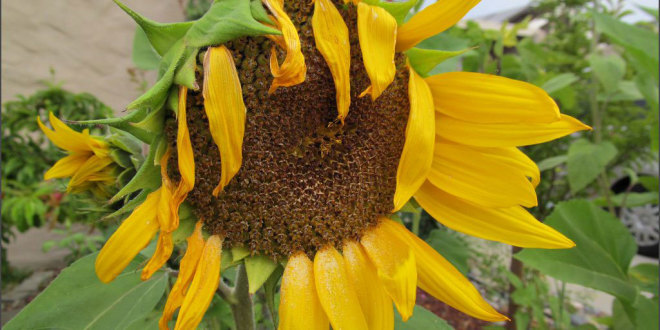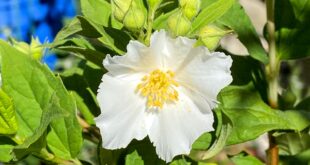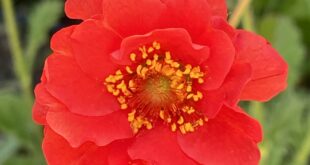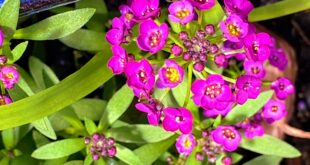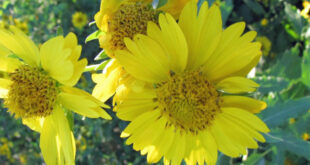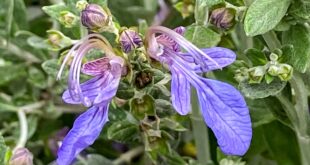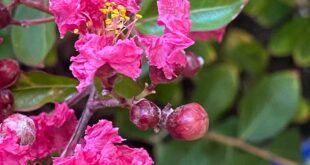American natives, sunflowers are grow for beauty as well as harvested for seed.
An annual plant, sunflowers have big, daisylike flower faces of bright yellow petals (and occasionally red) and brown centers that ripen into heavy heads filled with seeds.
Tall and course, the plants have creeping or tuberous roots and large, bristly leaves. Some sunflowers grow to over 16 feet in height though there are also varieties today that have been developed for small spaces and containers.
Most sunflowers are remarkably tough and easy to grow as long as the soil is not waterlogged. Most are heat- and drought-tolerant. They make excellent cut flowers and many are attractive to bees and birds.
Details
Family: Asteraceae (ass-ter-AY-see-ee) (Info)
Genus: Helianthus (hee-lee-AN-thus) (Info)
Species: annuus (AN-yoo-us) (Info)
Category:
Annuals
Height:
4-6 ft. (1.2-1.8 m)
6-8 ft. (1.8-2.4 m)
8-10 ft. (2.4-3 m)
Spacing:
9-12 in. (22-30 cm)
Hardiness:
Not Applicable
Sun Exposure:
Full Sun
Danger:
N/A
Bloom Color:
Bright Yellow
Bloom Time:
Mid Summer
Late Summer/Early Fall
Foliage:
Herbaceous
Other details:
This plant is attractive to bees, butterflies and/or birds
Average Water Needs; Water regularly; do not overwater
Self-sows freely; deadhead if you do not want volunteer seedlings next season
This plant is resistant to deer
Soil pH requirements:
6.1 to 6.5 (mildly acidic)
6.6 to 7.5 (neutral)
7.6 to 7.8 (mildly alkaline)
Patent Information:
Non-patented
Propagation Methods:
From seed; sow indoors before last frost
From seed; direct sow after last frost
Seed Collecting:
Allow seedheads to dry on plants; remove and collect seeds
Properly cleaned, seed can be successfully stored
Read more: http://davesgarden.com/guides/pf/go/223/#ixzz3LGs4iLYj
